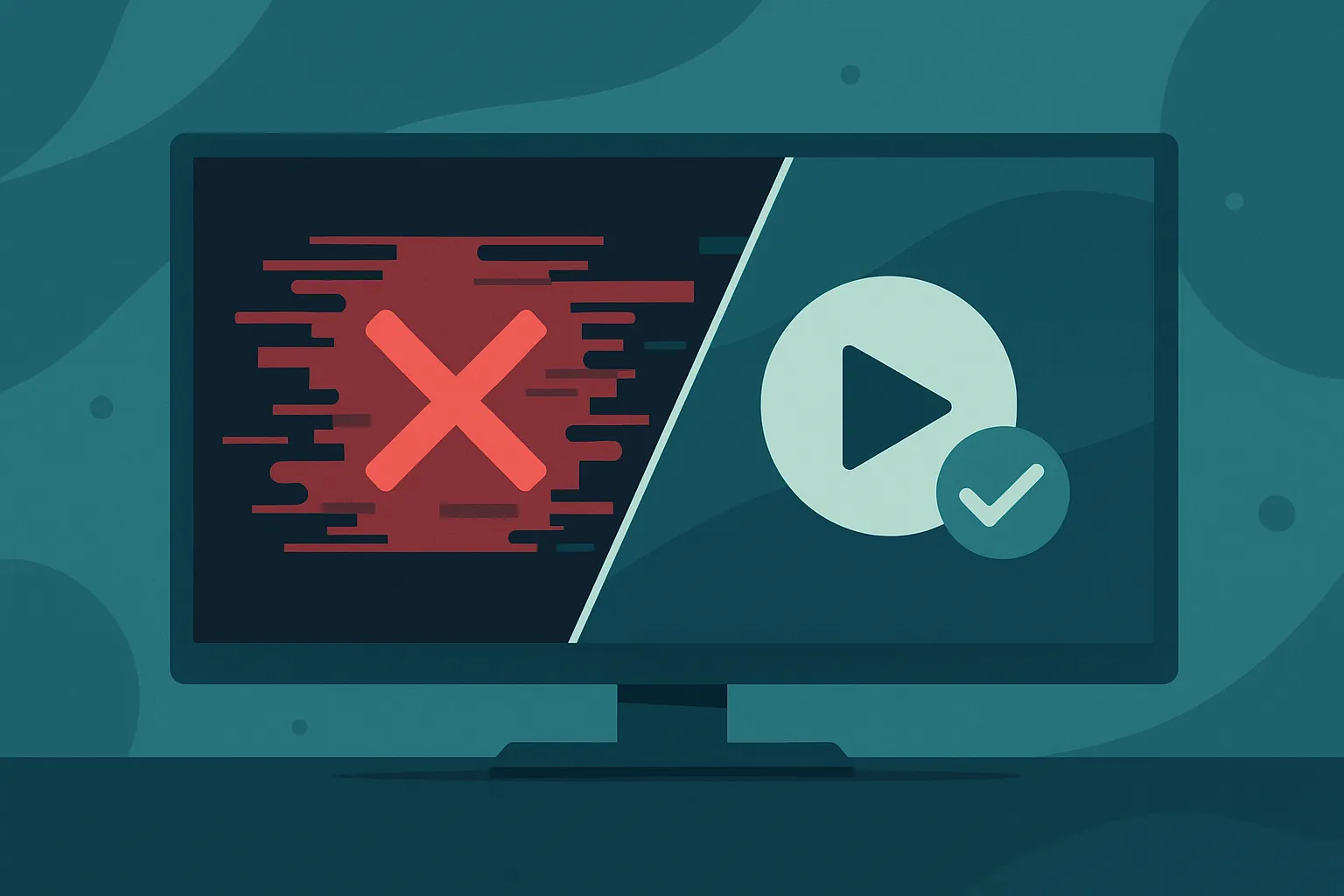“Is IPTV legal?” is one of the most common questions people ask before switching from cable or satellite. The short answer: the technology is legal. Internet Protocol Television (IPTV) simply describes how TV content is delivered. What determines legality is licensing—whether a provider has permission to distribute the channels and programs it sells. In this guide, you’ll learn how to tell if a service is truly IPTV legal, the risks of unauthorized providers, and a practical framework for choosing safe, reliable options.
What “IPTV Legal” Actually Means
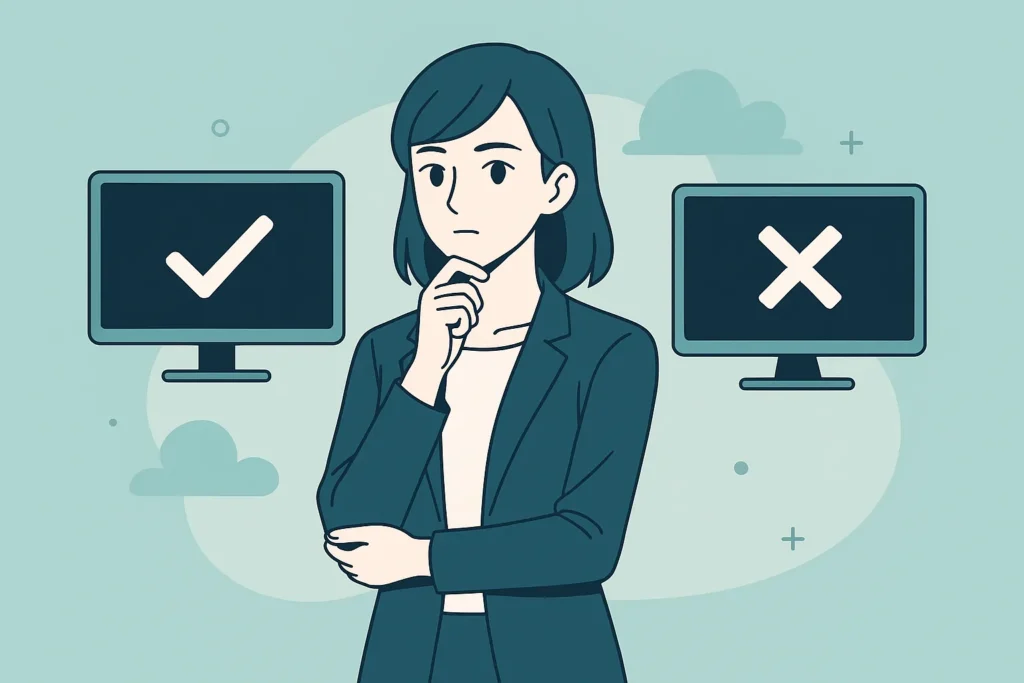
When we say an IPTV service is legal, we mean it has the rights to transmit the content it offers. That usually involves licensing deals with broadcasters, studios, or sports rights holders. Legal services tend to be transparent about partnerships, distribute their apps via official stores, and accept mainstream payment methods with clear terms.
By contrast, illegal IPTV providers resell content without permission. The stream might look polished, but behind the scenes there’s no licensing—only risky infrastructure that can vanish overnight.
We have an automated IPTV Trial finder system which can validate legal and trusted IPTV providers for you, we recommend you give it a try.
A Quick Decision Map You Can Use
- Is the app on official stores? (Google Play / Apple App Store) → If not, high risk.
- Does the website list channels they’re authorized to carry? → Vague lists or “all channels worldwide” claims are red flags.
- Pricing sound realistic? → Legit services reflect licensing costs; “lifetime everything for $20” is not realistic.
- Secure checkout? → Look for HTTPS and mainstream payment gateways (credit card). Avoid crypto-only checkout.
- Company details & support? → Real business info and support channels are good signs.
Licensing 101: Why It Matters
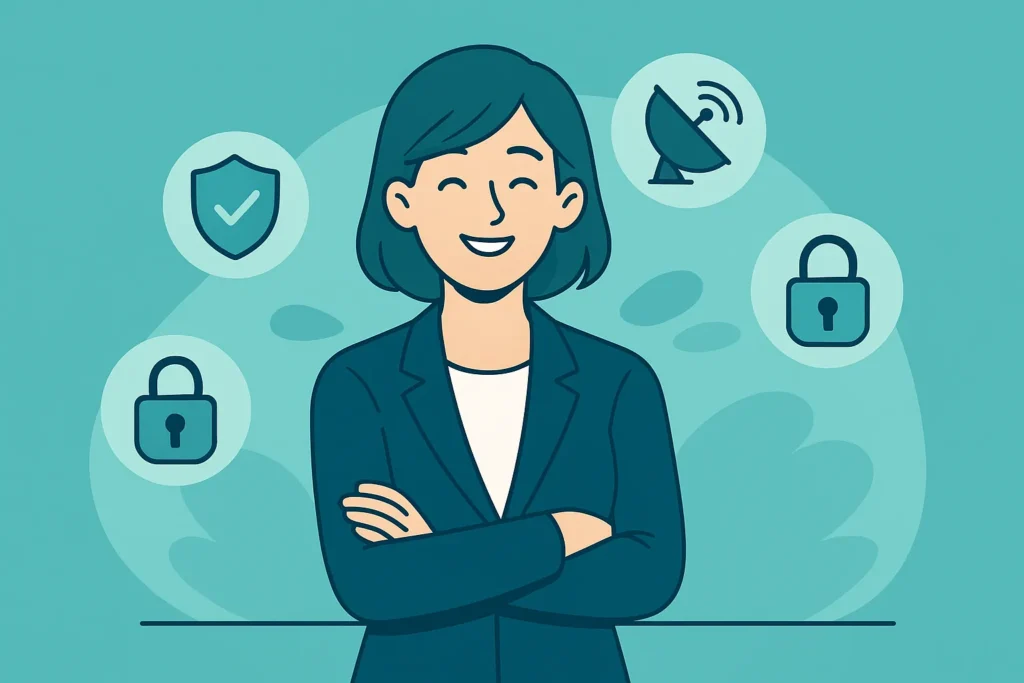
Licensing is the contract that lets a provider legally show you a channel or program. In practice, licenses cover things like territory (which countries), platforms (TV app, mobile, web), and duration. If a provider doesn’t pay for these rights, the stream is unauthorized—even if it’s high quality for a while.
Copyright and broadcasting rules vary by region. For general background on intellectual property and enforcement, consult:
- U.S. Copyright Office (overview of U.S. copyright law)
- Federal Communications Commission (FCC) (broadcast and communications policy)
- UK Intellectual Property Office (IP rights and enforcement in the UK)
- EU Intellectual Property Office (EUIPO) (EU-wide IP framework)
Regional Snapshots (High-Level)
This is not legal advice—always check local laws. These references help you orient yourself:
United States
Legal IPTV services operate under licensing deals and follow communications policies. See the FCC and U.S. Copyright Office for fundamentals.
United Kingdom & European Union
Unauthorized streaming and resale face enforcement actions; consult the UK IPO and EUIPO.
Canada & Australia
Broadcasters and regulators emphasize licensed distribution. For policy context, see the CRTC (Canada) and ACMA (Australia).
Why Legal IPTV Is Worth It
- Stability: Licensed providers invest in capacity and uptime.
- Consistency: Streams are less likely to buffer or vanish mid-season.
- Security: Official apps undergo review; fewer malware risks.
- Support: Real customer service and functioning refunds.
- Peace of mind: You’re not participating in unauthorized distribution.
The Risks of Illegal IPTV (Beyond the Marketing)
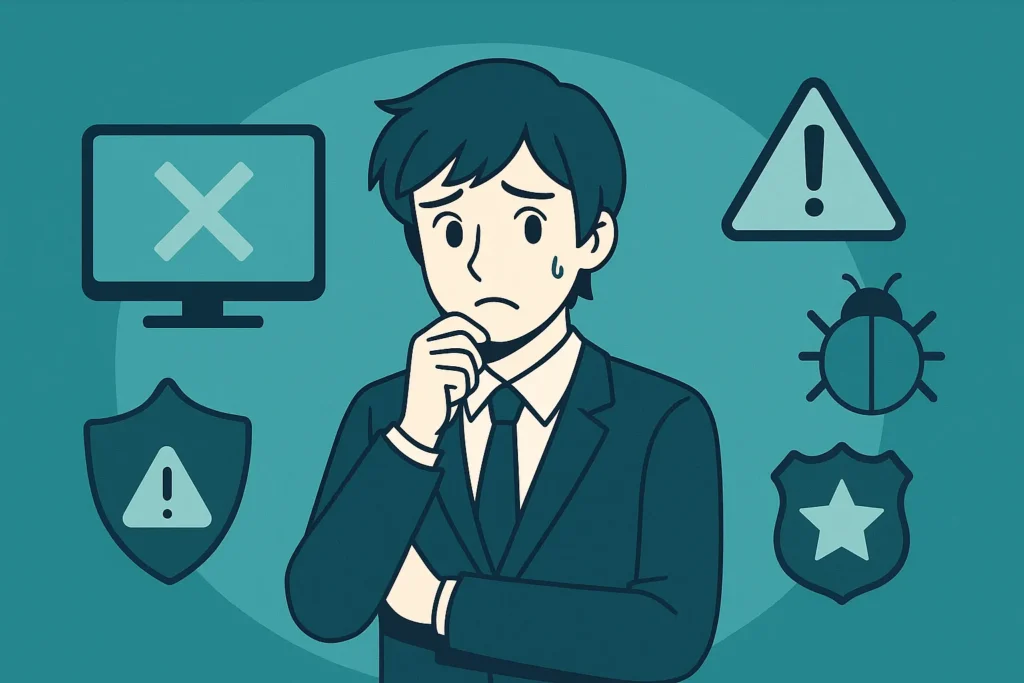
- Sudden shutdowns: Infrastructure and domains get seized; service disappears.
- Data exposure: Side-loaded apps may include spyware or adware.
- No recourse: Crypto-only or wire payments are hard to recover.
- Enforcement risk: Coordinated actions can target networks and resellers.
Myths vs. Facts About IPTV Legal Services
- Myth: “If it streams, it must be legal.”
Fact: Legality depends on licensing, not stream quality. - Myth: “Everyone uses it—so it’s fine.”
Fact: Popularity doesn’t change copyright law. - Myth: “Lifetime access for a tiny fee is normal.”
Fact: Content rights cost money; ultra-cheap “forever” offers are suspect.
How to Vet a Provider for Legality
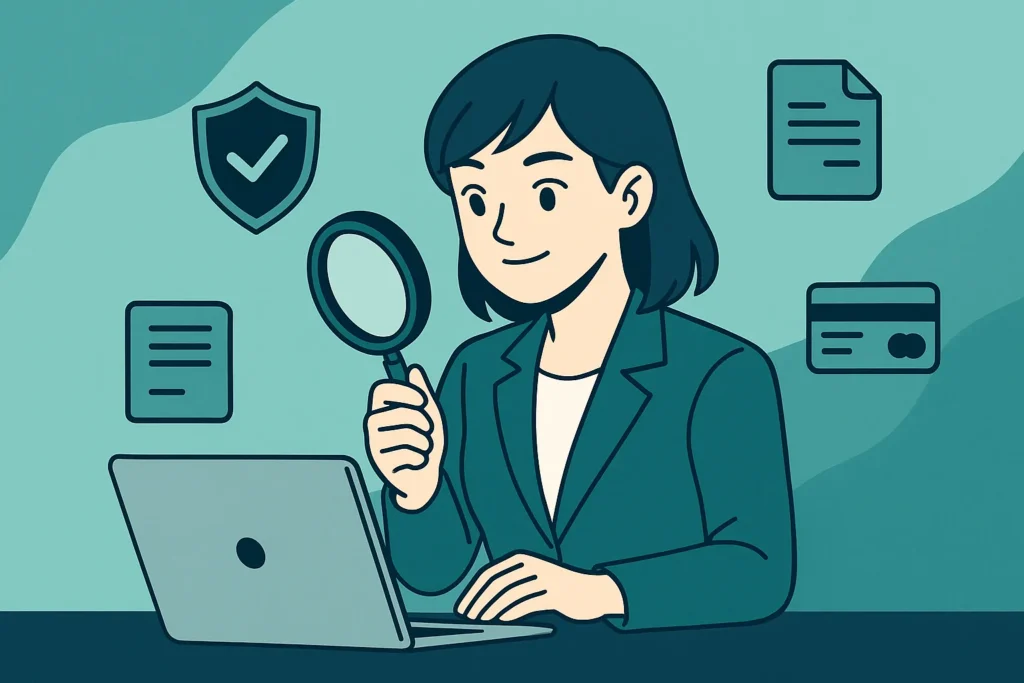
1) Check Distribution & App Integrity
- Is the app on official stores? (Apple/Google)
- Does the app require bypassing OS security settings? (Side-loading = caution.)
2) Look for Rights & Partnerships
- Do they clearly state what they’re licensed to carry?
- Do channels match what’s advertised, or is it a vague “thousands of channels” pitch?
3) Evaluate Pricing & Terms
- Avoid “everything forever” deals at suspiciously low prices.
- Prefer providers with transparent refunds and clear renewal terms.
4) Payment & Safety Signals
- Look for HTTPS and mainstream processors.
- Be wary of crypto-only checkouts and pressure tactics.
Security & Consumer Protection Resources
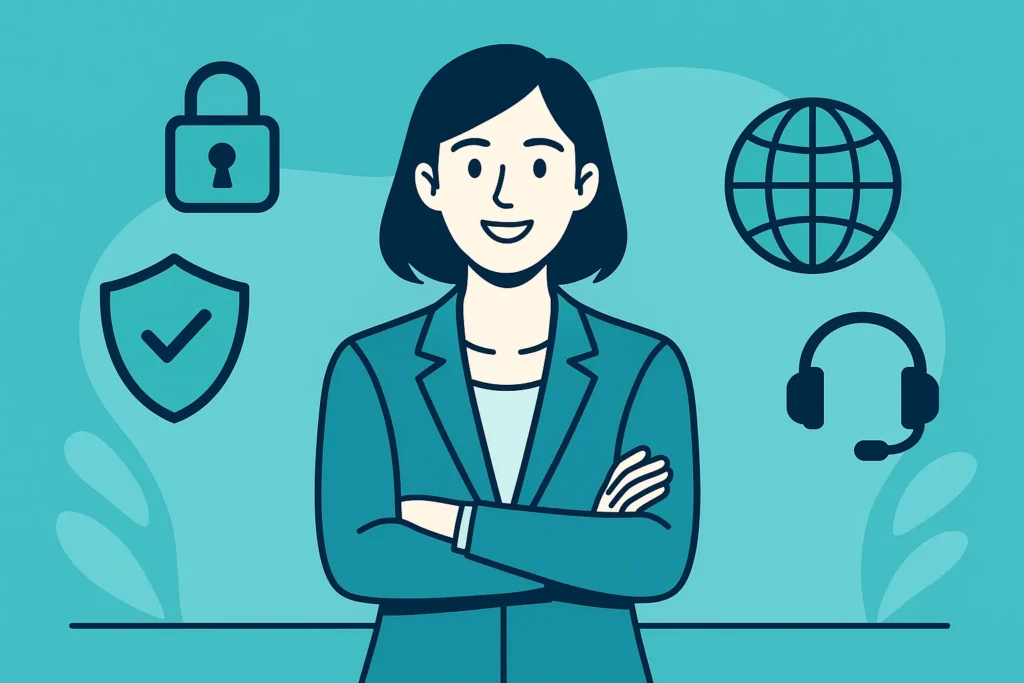
Even with legal services, keep your digital hygiene strong. These resources provide practical, vendor-agnostic safety guidance:
- U.S. Federal Trade Commission (FTC) — guidance on avoiding scams and disputing charges
- Cybersecurity & Infrastructure Security Agency (CISA) — phishing and malware basics
- Norton Security Resources — consumer-friendly explanations on antivirus and safe browsing
User Scenarios (Legal vs. Illegal Outcomes)
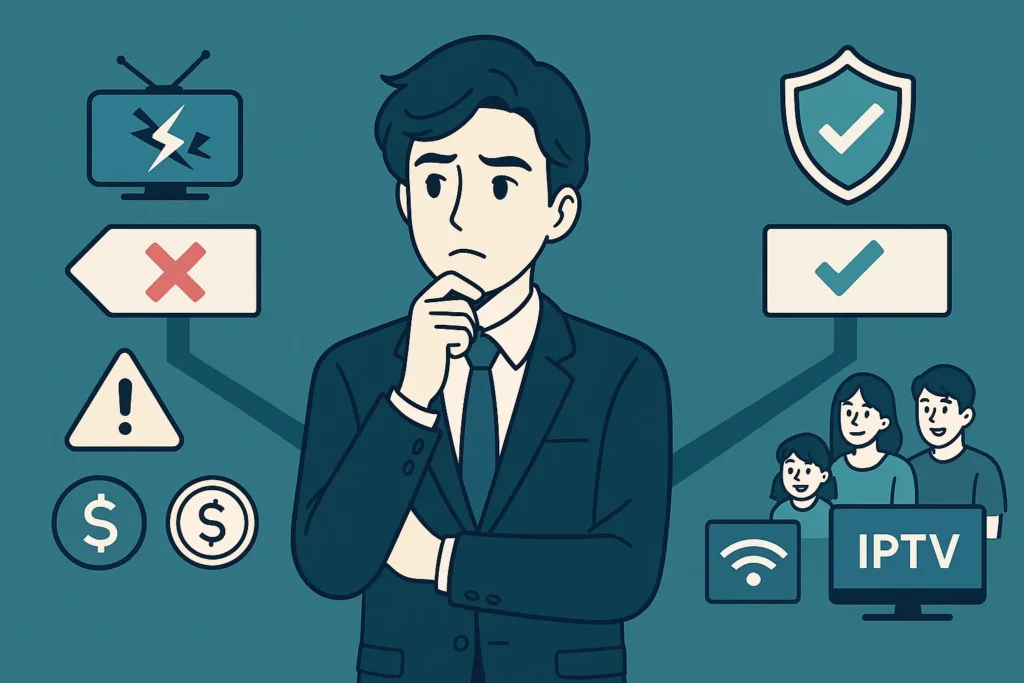
Scenario A: The Tempting Bargain
Marcus finds a service promising “all channels forever” for a tiny fee paid in crypto. The platform works for a week, then stops. Support vanishes, the domain changes, and chargebacks aren’t possible. He spends more time troubleshooting than watching.
Scenario B: The Licensed Route
Sophia chooses a provider with an app in official stores, normal monthly pricing, and clear channel listings. It’s not the cheapest, but it delivers consistent stream quality and dependable support—no scramble during big matches.
Examples of Licensed IPTV-Style Platforms
These mainstream services operate with content rights and transparent terms:
Availability and channels vary by region—always verify lineups on the provider’s official site.
Due Diligence Checklist Before You Subscribe
- Search the brand name plus “reviews” and “licensing.”
- Verify the app is in official stores; avoid sideload-only setups.
- Confirm channels and regions on the official website.
- Check for clear terms, refunds, and support.
- Use a credit card for dispute protections if something goes wrong.
Enforcement: What Real-World Actions Look Like
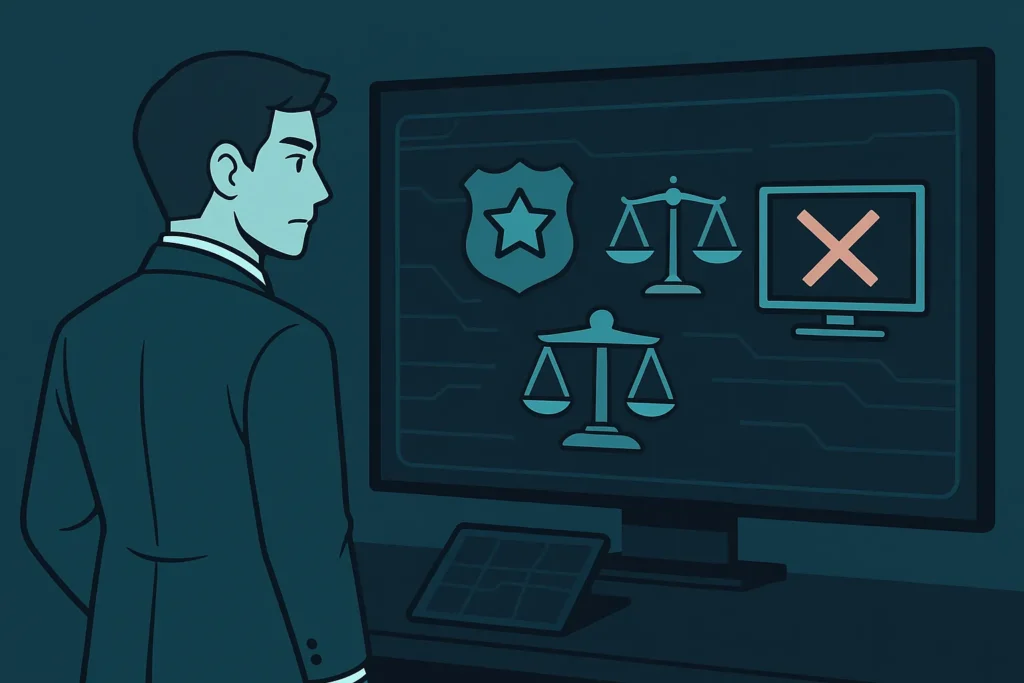
Illegal IPTV networks are often disrupted via coordinated actions. See Europol’s reports for representative examples of enforcement against large-scale unauthorized distributors. These actions can cause widespread outages, leaving users with no service and no refunds.
Glossary (Plain-English)
- IPTV: TV content delivered over the internet.
- Licensing: The right to stream or broadcast content legally.
- Authorized Provider: A service that pays for and publicly states its rights.
- Side-loading: Installing apps outside official app stores—often risky.
Final Thoughts
IPTV can be both modern and compliant—if you pick providers that respect rights. Keep your eye on licensing, realistic pricing, official apps, and trustworthy payment gateways. Legal IPTV doesn’t just protect creators; it protects you from shutdowns, malware, and wasted subscriptions.
If you want a safe place to start exploring options, see our homepage for carefully curated starting points that favor transparency and consumer safety.
Frequently Asked Questions
Is IPTV legal everywhere in the world?
The legality of IPTV depends on regional laws. In some countries, only licensed platforms are permitted, while others enforce strict penalties for unauthorized streaming. Always check local regulations.
What makes an IPTV service legal?
A legal IPTV service has obtained broadcasting rights or licensing agreements for the channels and content it offers. Unauthorized providers skip this step, making their streams illegal.
Can I get in trouble for using illegal IPTV?
Yes. While enforcement varies, users of illegal IPTV may face warnings from internet providers, service blackouts, or even legal penalties depending on the country.
How can I tell if an IPTV provider is safe?
Look for providers available on official app stores, with transparent pricing, secure payment gateways, and clear information about channel rights. Unrealistic lifetime deals are usually a red flag.
Are free IPTV apps on the internet legal?
Not always. Some free apps are legitimate and supported by ads, while others stream pirated content without authorization. Checking the app’s source and licensing details is essential.
Why should I choose legal IPTV instead of cheaper illegal options?
Legal IPTV offers stability, customer support, and better security. Illegal options may disappear overnight, expose you to malware, or put you at risk of legal consequences.
